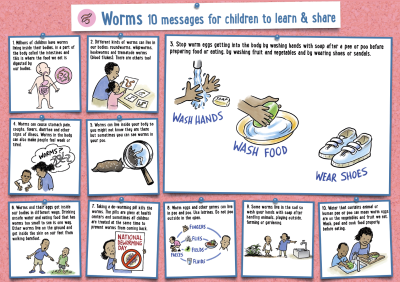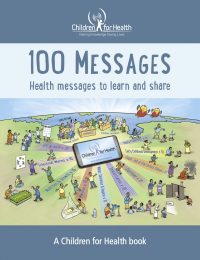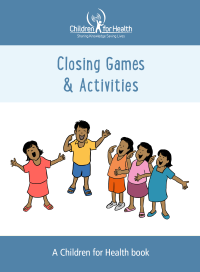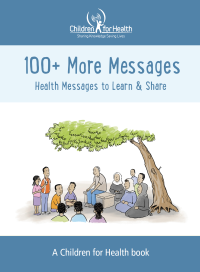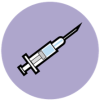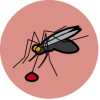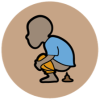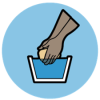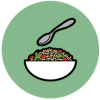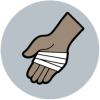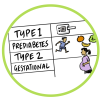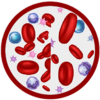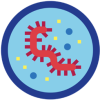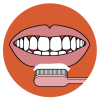Intestinal Worms

Intestinal worms affect millions of children worldwide.
Older children can learn and share knowledge about the life cycle of intestinal worms, the available treatments for worms and what they can do to prevent the chances of worm infestation like good hygiene practices and wearing shoes.
Read our Top Ten Messages on Intestinal Worms for children to learn and share. Scroll down to see ideas on what children can do to understand, find out more, take action and reflect on this topic.
Use the links below to browse our FREE resources to help children learn more, share their knowledge and become agents of change.
10 Messages on
Intestinal Worms
- Millions of children have worms living inside their bodies, in a part of the body called the intestines and this is where the food we eat is digested by our bodies.
- Different kinds of worms can live in our bodies: roundworms, whipworms, hookworms and trematode worms (blood flukes). There are others too!
- Stop worm eggs getting into the body by washing hands with soap after a pee or poo before preparing food or eating, by washing fruit and vegetables and by wearing shoes or sandals.
- Worms can cause stomach pain, coughs, fevers, diarrhoea and other signs of illness. Worms in the body can also make people feel weak or tired.
- Worms can live inside your body so you might now know they are there, but sometimes you can see worms in your poo.
- Worms and their eggs get inside our bodies in different ways. Drinking unsafe water and eating food that has worms too small to see is one way. Other worms live on the ground and get inside the skin on our feet from walking barefoot.
- Taking a de-worming pill kills the worms. The pills are given at health centres and sometimes all children are treated at the same time to prevent worms from coming back.
- Worm eggs and other germs can live in pee and poo. Use latrines. Do not poo outside in the open.
- Some worms live in the soil so wash your hands with soap after handling animals, playing outside, farming or gardening.
- Water that contains animal or human pee or poo can mean worm eggs are on the vegetables and fruit we eat. Wash, peel and cook food properly before eating.
Children can learn, collect & share these messages!
While teaching these messages, encourage children to…
MAKE their own Intestinal Worms Messages using their own words in their own language!
LEARN these messages so they never forget them!
ADD these messages to their collection!
SHARE these messages with other children and their families!
If your class or group is struggling to stay connected and engaged, we have loads of ideas for ideas to help them! Have a look at Closing Games & Activities.
Use the questions/discussion topics below to help children to memorise the messages and really understand them.
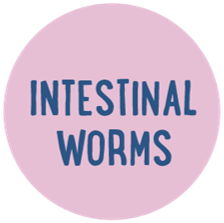
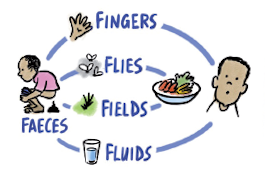
What can children make?
MAKE up a play about wicked worms and how children can stop wicked worms stealing their family’s food!
MAKE posters to show how to keep food safe and free from worms by washing it before eating raw vegetables, cooking meat properly and preparing food.
FIND out how to make a Tippy Tap and make a hand washing station for the class to use.
MAKE up a song about how to stop worms spreading.
MAKE a poster to remind everyone to wash vegetables and fruit before preparing them or eating them.
MAKE a role play or puppet show about how we can stop worms spreading.
MAKE up a song about hand washing to remind us when and how to wash our hands.
What can children do?
USE ‘vote with your feet’ to quiz children on what they know about worms.
WATCH a video about Schistosomiasis and find out more about worms in dirty water.
PLAY the word game fill-in-the-blanks to test their knowledge about worms.
LISTEN to a story about worms so they understand how to stop worms spreading by washing hands and wearing shoes/sandals.
FIND out how food is prepared in their school and how the cook keeps food safe and free from worms.
WATCH the video ‘Dirty word of the day: Worms’!
ALWAYS use the toilet or latrine to stop worm eggs spreading from poo into the soil and water.
LEARN how to properly wash their hands – they need soap and water.
TAKE a quiz to ensure the children know when and how often they to wash their hands.
DO a survey at home to find out what their families know about worms.
LISTEN to a story about Meena or read the comic book about how Meena learns about worms.
WATCH a video about digestive system function.
WATCH a video about how to clean water so that it is safe using sunlight.
What can children ask?
HOW does the food they eat get used by their bodies?
HOW do worms eat our food?
HOW long can a tape worm grow?
HOW many types of worm do they know?
WHAT kind of worms are most common where they live?
WHAT are the signs that they could have worms?
WHERE can they get de-worming medicine and who needs to take it? (Everyone in their family!)
HOW many eggs can a worm make every day?
WORMS may take other nutrients like Vitamin A from their bodies as well as food – can they find out why they need Vitamin A?
WORM babies are called larvae. Which worm larvae get into their bodies through skin?
HOW does using the toilet or latrine and getting rid of poo safely help stop worms spreading?
WHEN are the school de-worming days? Why does everyone get de-worming tablets on the same day?
HOW many children in the world have worms?
WHY is it important we stop worms spreading?
ABOUT human digestive systems: how long is the large intestine? How does it work? What do worms do to stop it working?
HOW small is a worm egg? What is the smallest thing you know?
HOW can they tell if water is clean or dirty?
WHAT do plants need to grow? How can they make fertiliser that is safe to feed to plants?
Download these free materials now to help children learn and share these
essential health messages. See our free resource section for more!

